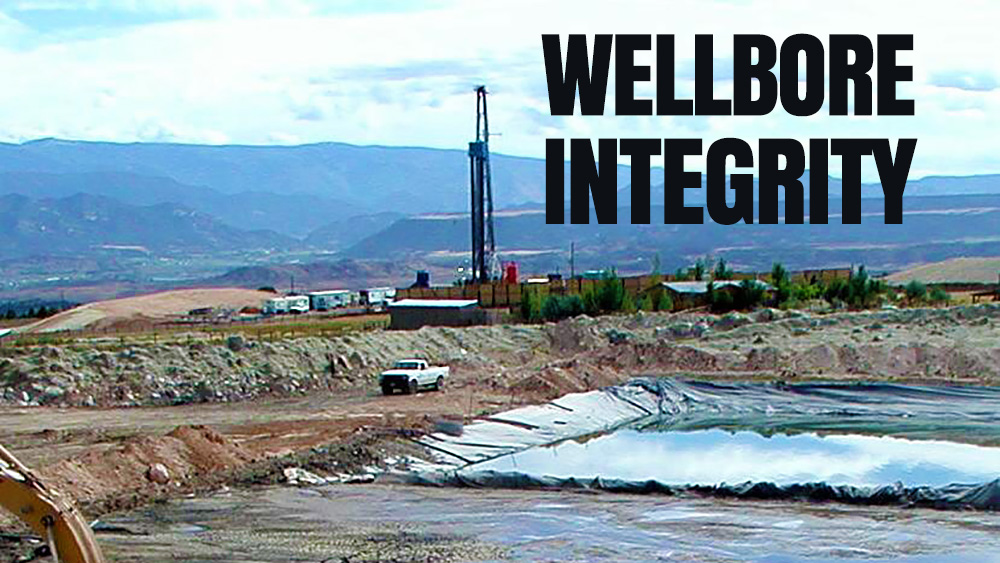- An Alliance For Community Action
- (970) 256-7650
- info@WesternColoradoAlliance.org
Tell the COGCC: We care about groundwater protection!
The Colorado Oil and Gas Conservation Commission (COGCC) is right now addressing a specific subset of these issues caused by wellbore integrity. SB181, last year’s groundbreaking oil and gas reform legislation, directed the COGCC to undertake a wellbore integrity rulemaking. The goal is an industry in which wells are drilled, constructed, operated, maintained and closed in a way that prevents leaks, spills, and explosions. These rules will determine how well-protected groundwater sources are from oil and gas development.
The COGCC has proposed a set of draft rules regulating the construction, testing and operation of potential wells, as well as mandating blowout prevention technology and a first-in-the-nation wellbore pressure monitoring and testing requirement to find and eliminate leaks as quickly as possible.
But there are still some ways the new rules can be improved. (You can find our suggestions for improvements in the talking points below.)
The hearing for this rulemaking is set to take place on April 29-30. In advance of the rulemaking, the COGCC is accepting comments from the public through their online portal here.
Below are some bulleted talking points you may find helpful when making your comments through the link. Comments are due before the hearing begins on April 29, and are one of the most important steps you can take to ensure communities are safe from reckless development.
Talking Points for Wellbore Integrity Rulemaking
Where we support the draft rules…
- ANNUAL PRESSURE TESTING. When paired with a requirement to do monthly pressure monitoring, this rule will give the COGCC a view into the health of every single operating well in the state.
- TESTING AND OPERATION REQUIREMENTS during the construction, drilling, and fracking phase will also help ensure that wells are built according to regulations, and will reduce the likelihood of wellbore failures or other incidents.
- REQUIRED PRESSURE TESTING of the various casing strings before operators can move to the next step of drilling ensures that wells are being properly constructed to the proper standards, and can withstand greater than anticipated pressure levels.
- MANDATORY TESTING AND MONITORING OF WELLS WITHIN 1,500 FEET OF THE PROPOSED WELLBORE prior to and during fracking will ensure that old wells are capable of handling the intense pressure of modern fracking operations.
Where the draft rules need improvement…
- Colorado must take future needs into account when determining GROUNDWATER that needs to be protected. The rule needs to protect not just groundwater being used today, but the water we may need in the future. This is all the more urgent as Colorado’s climate becomes warmer and drier!
- SB181 prioritized protection of public health, safety, and welfare, the environment, and wildlife resources over the production of oil and gas resources. We need a BROAD AND CLEAR DEFINITION of the water that is being protected, not one that lets the oil and gas industry drill now and worry about groundwater later.
- The oil and gas industry has not earned the trust necessary to allow them to self-regulate and self-report. We need RULES AND SUFFICIENT INSPECTION OVERSIGHT to verify operator test results and monitoring.
- We need CLEAR STANDARDS that both operators and the public can understand when it comes to protecting groundwater, without loopholes or exceptions that leave good water unprotected.
- TRANSPARENCY. The public has a right to know where the relevant groundwater resources are located, what the operators are doing to protect them, and how the COGCC is holding operators accountable to those standards.
In Colorado, there are more than 50-thousand active oil and gas wells. There are also another 20-30-thousand plugged and abandoned wells. These wells and their infrastructure leak every single day. In fact, according to the Center for Western Priorities, there were almost two spills or leaks per day in Colorado.
Since 2016, there have been at least 40 incidents across the state that were the direct result of wellbore integrity issues. Some famous examples include the 2017 incident in Berthoud, CO wherein fracking operations caused drilling mud to leak out of nearby wells more than 30 years after they were capped, and a 2017 explosion on a well pad in Windsor, CO that took 17 hours to subdue.
Tell the COGCC we can do better. Make a comment to protect groundwater today.
Emily stepped up as our staff director in 2017, but originally joined our team as a community organizer in 2013. Born and raised on the Western Slope, Emily graduated from Colorado State University and then had the privilege of learning from and working alongside organizers in Central and South America as well as Appalachian coal country. They returned to their home state to protect the land they love and work with fellow Coloradans for a healthy, just and self-reliant future for our rural communities. Emily enjoys organizing, exploring the Colorado Plateau, country music and punk concerts with equal passion.


